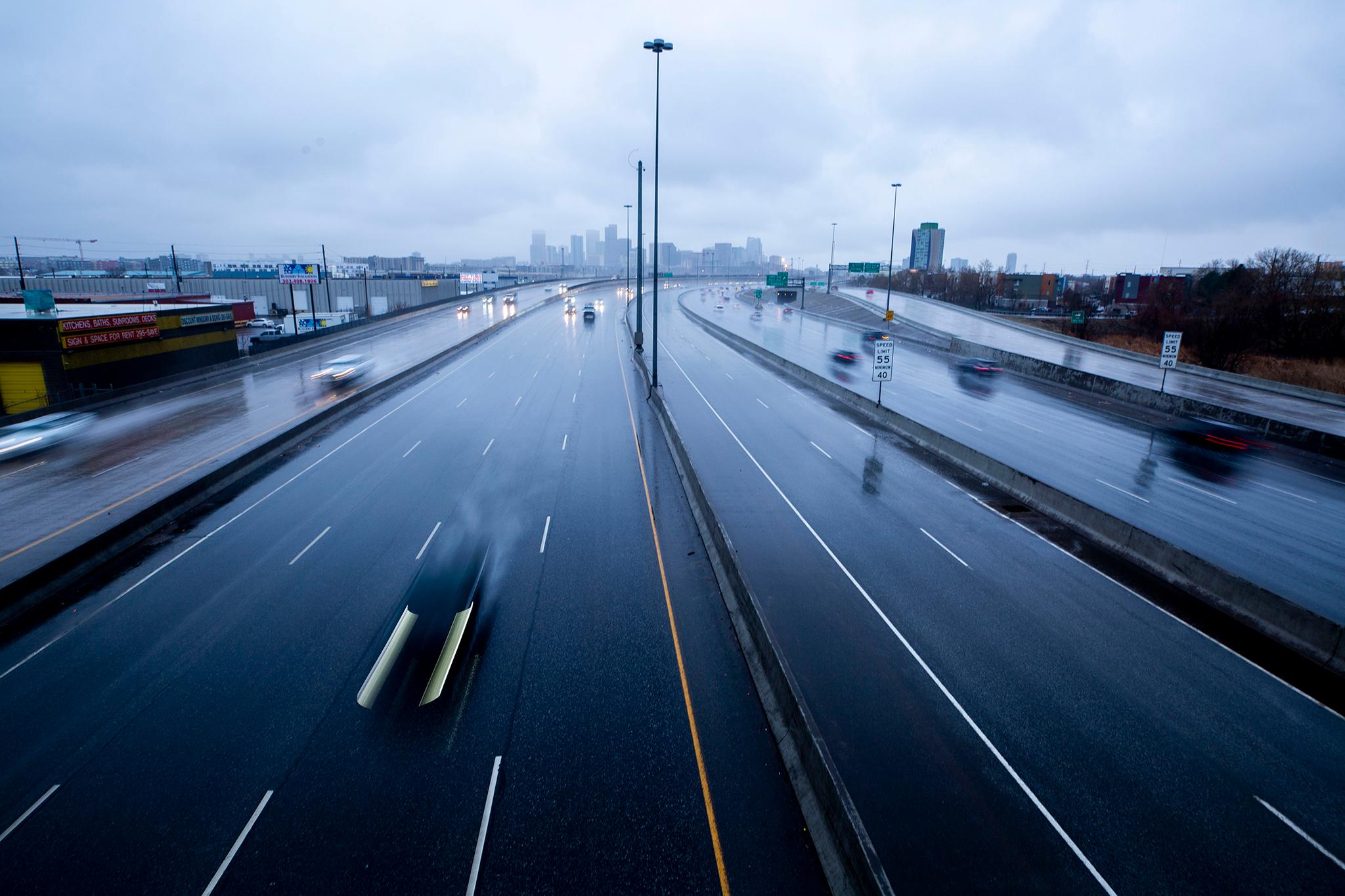The American Lung Association released its annual "State of the Air" report Tuesday and named the Denver metro 10th on its list of cities with the worst ozone pollution.
State authorities know this is a problem, and they hope some people might continue working from home after the COVID-19 pandemic fades to address it.
The Front Range has long been on the EPA's list of non-compliant areas for ozone. When he was governor, John Hickenlooper asked the EPA for time to come into compliance, but last year his successor, Jared Polis, wrote a letter to the agency essentially rescinding Hickenlooper's ask.
The state has until the end of the year to come into compliance with the EPA's requirements. If it doesn't, industrial operations will have to adhere to a more stringent permitting process for emissions. Oil and gas operations will likely be most affected by these changes.
But scientists at the National Center for Atmospheric Research say cars in Denver contribute to our pollution problem as much as oil and gas activity further north.
Under normal circumstances, the state doesn't have the power to tell everyone to stop driving. But to curb the coronavirus pandemic, it essentially did just that. When Colorado ordered people to stay home to keep the virus from spreading, a lot of car trips to work and school and elsewhere also stopped. Experts expect to see a decent drop in overall air pollution as a result.
Now, the Regional Air Quality Commission (RAQC), the group tasked by the state to figure out how to come into compliance with federal air rules, hopes to ride the teleworking wave that has become our new normal. When the state begins to open back up, it hopes some businesses might consider letting workers keep doing their thing at home.
"People are learning to adapt to a work world that is remote, and we'd like to see that kind of activity continue," RAQC executive director Mike Silverstein told Denverite. "Maybe it's just one day a week or two days a week versus all the time. But, you know, we'll take it."
Silverstein said his commission has long advocated for teleworking, but the cultural shift he's seen during the pandemic makes this a ripe time to push harder. It's especially important now, he added, since another important tool has basically evaporated.
Up until a few months ago, the RAQC hoped public transit improvements could make a big impact on vehicle emissions. But Silverstein said the pandemic has taken one of their "key messages" away since it's become kind of of scary to get onto a crowded bus.
The stigma will likely compound on RTD's pre-pandemic operational problems, he said, and impact the system's viability "for years to come."
Danny Katz, executive director of the Colorado Public Interest Research Group, agreed that teleworking could make a dent in our ozone problem. But it can only do so much.
Katz told Denverite that commuting only accounts for about a quarter of car trips made in Denver every day -- on a normal pre-COVID day, anyway. The rest are trips to schools, grocery stores and, more importantly, all of the delivery vehicles bringing online orders to our doorstep. Business for food and grocery delivery is booming right now, and Amazon recently announced it would increase its statewide workforce with 1,000 new jobs.
To make the biggest impact, Katz would like to see systemic change, where delivery trips are consolidated and consumers just learn to reuse stuff and stop buying new things so often.
Teleworking, he said, "is not a panacea. This is not the thing that will get us to the kind of environment and quality of life that we need."
Still, he recognized the cultural shift that's precipitated from the virus crisis. Work-from-home has become the norm, he's just not sure that it will be permanent.
Silverstein said the RAQC's newfound emphasis on telework is still just one area where they want to see changes as summertime ozone highs draw closer.
"We're ramping up all of our outreach messaging, regardless of COVID, to say we need to telework more and drive less and do a better job with industrial compliance," he said.
According to the American Lung Survey's report, more than 300,000 people in the Denver-Aurora statistical area -- almost nine percent of the total population -- suffer from asthma. Considering the 117,000 people with COPD, or chronic obstructive pulmonary disease, the 150,000 people with cardiovascular disease and the more than 1,000,000 people in poverty, the study suggests there are plenty of reasons why better air would benefit public health.
The key thing Silverstein wants Denverites to understand: "The average person can make a difference."











